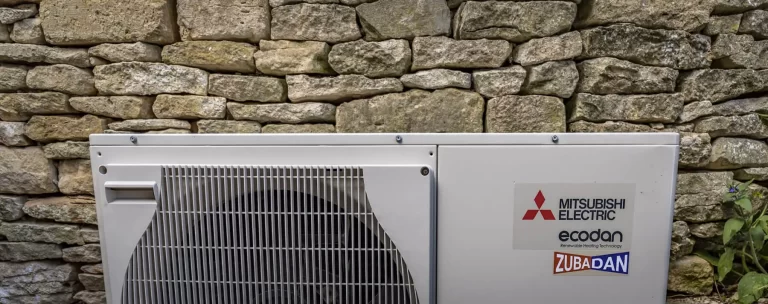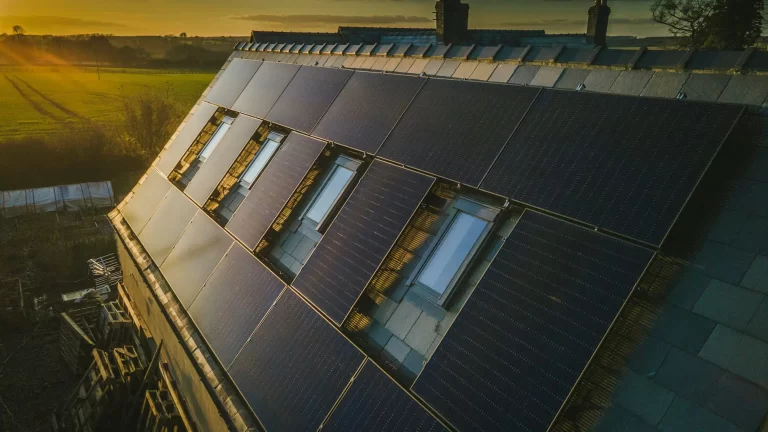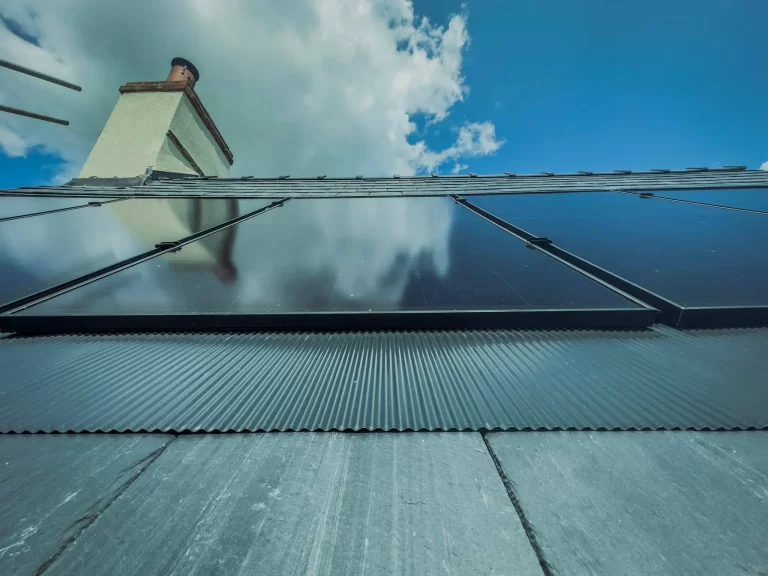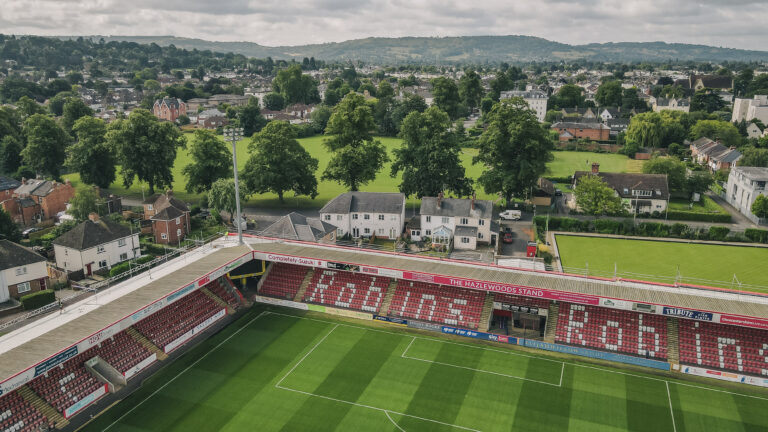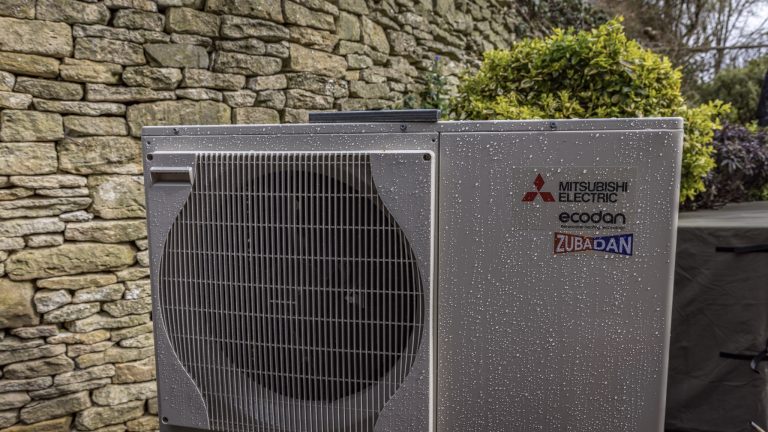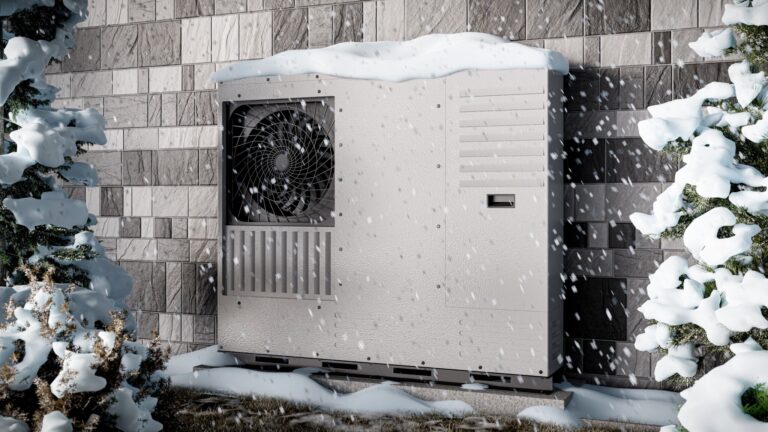Solar panels are one of the most accessible renewable energy solutions and are rising in popularity amongst UK homeowners. Suitable for properties in both rural and urban areas, solar panels can help you to significantly reduce your energy costs as well as your carbon footprint. In this article, we’ll answer some of the most important questions about solar panels, helping you to decide whether they’re the right energy solution for your home.
How Do Solar Panels Work?
Solar panels are devices that convert sunlight into electricity. They are often made up of many small units called photovoltaic cells where each cell contains a layer of silicon or another photovoltaic material that absorbs light. When sunlight hits these cells, it generates an electrical charge – a phenomenon known as the photovoltaic effect.
Once converted by an inverter, this electricity flows through your home’s wiring, powering everything from lights to appliances. Any excess electricity can either be stored in a battery system for later use or sent back to the electricity grid, earning you credits or payment from your energy supplier, depending on your agreement with them.
This seamless conversion allows solar panels to be a reliable source of energy during the day, even when the sun isn’t at its brightest.
Is It Worth Getting Solar Panels?
Yes, in most circumstances, installing solar panels is well worth both the cost and the effort. Solar panels can produce enough energy to cover all your electricity usage during the summer months, while supplementing a heat pump or storage heater and reducing your energy bills in the winter. Some households also find that their solar panels produce more energy than they can use, allowing them to store that power or sell it back to the grid. This means that despite the initial costs that come with solar panels, they’re more than worth the investment for the majority of people who have them installed.
What are the Benefits of Solar Panels?
Solar panels have become an increasingly popular home improvement and for good reason. Whether you’re interested in improving your financial situation or contributing positively to a greener future, solar panels come with a whole host of benefits, including:
- Save money: Solar panels can save you a huge amount of money on your energy bills and may even be able to cover all of your energy needs. Once your solar panels are installed, you won’t have to pay a penny for the energy they generate, so you may cut out energy bills as an expense altogether. Your savings will depend on the size of your home as well as the number of solar panels you have, but solar panels will almost always pay for themselves after around six to ten years once you offset the up front cost of installation.
- Lower carbon footprint: If you’re looking for ways to live a greener, more sustainable life, solar panels are a great way to significantly reduce your carbon footprint. Unlike burning coal or other fossil fuels, solar energy won’t release any harmful pollutants into the air, making it a completely renewable form of energy.
- Year-round energy: There’s a misconception that solar panels need constant sun or fair weather to generate energy. Even when longer nights creep in during the winter months, your solar panels will continue generating power to fuel your home. While it’s true that sunny days do improve the efficiency of solar panels, you shouldn’t notice a disruption to your home’s energy if you have the right number of panels installed for your needs.
- Long-lasting/low maintenance: After their initial installation, your solar panels should serve you for 25 to 30 years and will need very little maintenance. You may need to replace some parts after 10 years or so, and it’s recommended to have a professional check your panels on a regular basis, but you shouldn’t expect any major issues to crop up.
- Independent energy solution: Solar panels are particularly popular amongst homeowners who live in remote locations, as they allow you to get your energy completely independently from the national grid. However, even if you don’t live in a remote location, you won’t be as affected by fluctuations in energy prices or power cuts.
What Factors Should I Consider Before Purchasing Solar Panels?
Solar panels are very compatible with most UK homes, but that doesn’t mean they’re always the right fit. Before booking a solar panel installation, it’s important to consider whether they’ll work for your property as well as your unique situation and energy needs. Things you should consider before investing in solar panels include:
- Financial Impact
Financial benefits and savings are one of the main reasons that homeowners consider installing solar panels, but it’s important to consider how great these benefits will be as well as how initial costs fit into your budget.
Spend some time understanding how much solar panels will cost you and your family and get a personalised quote for not only the panels themselves, but the work that needs to be done as well. Once you have a figure, you’ll be able to consider whether solar panels are affordable at this time, or whether you may have to consider a payment plan or adjustments to your lifestyle in order to afford them.
If affordability is a concern, it’s worth researching available grants and loans. There are a number of different schemes that aim to subsidise the cost of installing solar panels, but the availability of these will depend on where you live in the UK, as well as your personal circumstances.
Finally, while you will see your energy bills decrease after your solar panel installation, it’s worth spending some time working out exactly what your savings could be. This will help you to understand how long it will take you to break even on your initial investment and should allow you to plan your finances better.
- Sunlight Levels
Solar panels are very effective at generating energy all over the UK, so there’s no need to worry about cloudy and rainy days. However, the positioning of your roof could impact how efficiently your solar panels work. For example, south-facing roofs that are slanted at a 30 or 40-degree angle typically produce the best results, though that’s not to say other types of roofs are incompatible with solar panels. Your roof should also have an average of four hours of sunlight on it each day and shouldn’t be obscured by overhanging trees or tall buildings that cast large shadows.
- Property and Roof
The roof of your home needs to be structurally sound and big enough to support a solar panel installation. While larger households usually need more solar panels to meet their energy needs, even smaller homes will need around 30-50 square metres of available space. This space should also be unobstructed by chimneys or satellite dishes, especially if they cast shadows onto the area where the solar panels would go. If your roof is particularly old or in disrepair, you may need to renovate it before having solar panels installed.
How Much Do Solar Panels Cost?
How much your solar panels cost will depend on a few different factors, such as the number of solar panels you need and the type of system you have installed. However, you can typically expect solar panels to cost around £5,000-£10,000 for an entire installation. If your household is smaller, you can expect your solar panel system to be at the lower end of this range, while larger homes with more extensive energy needs will need to pay more. If you’re also investing in solar batteries or have more complex installation needs, you may end up spending more.
Keep in mind that while it may be tempting to opt for a cheaper system, a more expensive option could save you more money over time. Investing in a large network of solar panels, if you have the space, could allow you to store energy that you can use later through battery storage. This would give you more flexibility and allow you to use the energy you generated during the day in the evenings.
But how long will it take to break even? As it turns out, it may not take as long as you think. If you invest in a small solar panel system that is suitably sized for your household’s needs, you may break even in as little as six years, though it could take up to eight. Larger solar panel systems often break even more quickly, in around four to five years. However, this will depend on how much you usually spend on energy as well as how much energy your solar panels generate.
What Grants Are Available for Solar Panels?
There are a number of different grants available to those planning on installing solar panels, with most of them being geared up to help low income households make the switch. This is largely because the UK government want to encourage households to switch to a greener form of energy, lowering the country’s carbon footprint. Solar panel grants can vary depending on exactly where you live and you may not be eligible for all of the schemes, but they’re well worth researching as they could save you a considerable amount of money.
For example, the ECO4 Scheme helps low-income households to convert their old heating systems into eco-friendly alternatives. Some of the conditions include being in receipt of benefits and having an inefficient heating system currently installed in your home.
Solar panels are also now charged at a reduced VAT rate of 0% until 2027. This will usually be applied automatically when you buy your solar panels if you’re eligible, which could save you up to £1,000.
If you don’t qualify for any government schemes, some banks may have green initiatives for customers with mortgages.
What are the downsides of purchasing Solar Panels?
On the whole, solar panels have far more benefits than they do disadvantages, but it’s important to consider every angle before making the switch. One of the biggest downsides of solar panels is the upfront costs you’ll need to pay, especially if you’re on a tight budget. However, it’s worth remembering there is financial support available and that solar panels can help you make this money back after a few short years.
Another downside of solar panels is that their efficiency does depend on the amount of sunlight they receive. This means that they’ll only be able to produce energy during the day and will perform much better during the summer months. But this doesn’t mean you’ll go without energy at night, it simply means you may need to store the energy produced during the day to use when it’s dark.
Solar panels also need to be placed in an optimal location and if your roof faces the wrong way or is in a shaded area, it may be hard to get the most out of your solar panels.
What are the different types of solar panels?
There are two main types of solar panels: photovoltaic panels and solar thermal panels. Photovoltaic panels are the most common, as they work by converting sunlight into electricity that can be used normally within your home. Solar thermal panels, on the other hand, can only be used to heat your home and don’t provide general use electricity.
Let’s delve into these two types of panels in more detail:
Photovoltaic Solar Panels
Since photovoltaic solar panels can provide energy that will both heat and power your home, they’re a smart choice for anyone who wants to use them as their sole source of energy.
Photovoltaic solar panels are made up of lots of solar cells that are responsible for absorbing light from the sun and transforming it into usable electricity. These cells contain lots of semiconductors, which are connected to allow electric currents to flow freely. You’ll need multiple solar panels working together to generate enough electricity for your home, which are typically connected with brackets and cabling.
Photovoltaic solar panel systems can either be connected to the grid or function as a stand-alone source of energy.
If a homeowner chooses to connect their solar panels to the grid, they’ll always have enough electricity even if their solar panels don’t generate enough. This can be a good idea when your solar panel system is relatively small in comparison with your home’s energy needs. However, connecting your solar panels to the grid also offers the benefit of being able to sell surplus electricity back to the grid, making it an attractive choice even for those with more extensive solar panel systems.
If your solar panel system is completely separate from the grid, you’ll need a solar battery. This battery gets charged by the electricity the solar panels generate and can be used inside your home. This type of system is usually more expensive than one connected to the national grid, with solar batteries costing between £1,000-£5,000, but it allows people who live in remote locations to generate electricity if they struggle to get access otherwise.
Solar Thermal Panels
Rather than directly converting sunlight into electricity, solar thermal panels use the sun’s energy to heat a cylinder of water. This water can be used for baths and showers as well as to heat your home in a similar way to a boiler. Solar thermal panels will look very similar to solar panels, and they still need to be installed on your home’s roof.
How Effective Are Solar Panels in the UK Climate?
Solar panels are very effective in the UK. Despite needing the sun to produce energy, solar panels don’t need consistently sunny days to power your home. When positioned properly, you’ll be able to generate enough energy for your needs even on gloomy days or during the winter months. You also have the option of storing extra energy you produce in the summer to use when the weather is less favourable.
In general, you can expect your solar panels to have a 15 to 20% efficiency rate in the UK, with some panels reaching 25% efficiency. This efficiency rating is calculated by looking at how much sunlight is used by your panels and converted into electricity versus the sunlight that simply bounces back off their surface.
Will Solar Panels Work at Night?
Solar panels don’t generate electricity at night, but that doesn’t mean you will have to go without electricity or heating when it’s dark out. Because you can store the energy that solar panels generate, you’ll be able to use the electricity produced that day in the evening.
However, if you don’t have a solar battery, you can’t store your electricity for later, meaning you’ll need to rely on the national grid at night. As a result, your solar panels will provide you with the best savings if you use more electricity when they’re generating electricity i.e. during the sunniest part of the day. Therefore, it can be a good idea to run the washing machine or use the oven during these times, as these activities can use a lot of power.
Even if you plan on selling back your energy to the grid, it’s still far more efficient to use it yourself. You’ll likely be paying a lot more for the energy you use than the price you’ll get for the energy you sell, so it’s best to make use of it yourself if you can.
How Many Solar Panels Do I Need?
The number of solar panels you need will depend on the size of your home as well as how many kilowatts your system produces. Solar panels that have a higher kilowatt output will generate more electricity, so you won’t need quite as many to power your home. Opting for higher kilowatts may be beneficial if you have limited space on your roof, or want to make the best use of the space you do have available.
Typically a small one-bedroom house or flat will need four to six solar panels, while a three-bedroom house will need between four to ten. However, it’s important to calculate how many solar panels you need based on your own energy needs.
- Have a look at your energy bills for the past few years and calculate your average usage in kWh. You’ll need to work out how much electricity you usually use each year to know how many solar panels you need to generate that same amount of energy.
- Think carefully about how much electricity you want your solar panels to produce. Are you happy still relying on the national grid for some of your electricity? If so, how much? Even installing a few solar panels can help you save money even if they don’t generate all your electricity for free.
- Measure the amount of space you have available on your roof and compare it with how much space solar panels take up. Most solar panels need around 1.5m2 of space as well as a perimeter of about a foot between them and the edge of your roof. If your roof is smaller than you expected, you can scale back your solar panel system or look into panels with a higher kilowatt output.
Do I Need Planning Permission for Solar Panels?
In most cases, you don’t need to apply for planning permission when installing solar panels on your home in the UK. However, if your solar panel system is particularly large, or your panels are raised more than seven inches off your roof, you may need planning permission. You’ll also typically need planning permission if you’re installing solar panels on a listed building or if your panels will be visible from the road in a conservation area. Always look into local regulations to check you’re adhering to all the rules your council has set out before booking your solar panel installation.
Can You Take Solar Panels with You When You Move?
In theory, you can take your solar panels with you if you move home, but it’s often not very practical. Removing your solar panels and then reinstalling them on your new home would cost a lot of money and you may not break even on your investment for a long time, if at all. It would only be worth looking into this process if you had a very large solar panel system, but even then solar panels are often classed as fixtures of your home and would be expected to be sold along with the house.
Solar Panels: Are They Right for You?
If you’re looking for a way to save money on your energy bills, generate energy independently from the grid, or cut down your carbon footprint, solar panels could be a great option to do that. Make sure you spend some time assessing your energy needs, understanding how much solar panels could save you, and working out whether your home is suitable for an installation. It’s important to identify your goals ahead of time and be realistic about how much you can afford to spend, as this will help you decide where to compromise if your ideal solar panel system isn’t a viable option.



